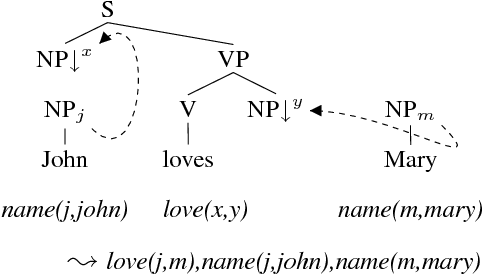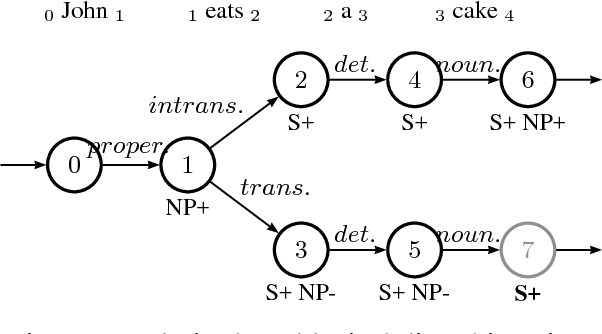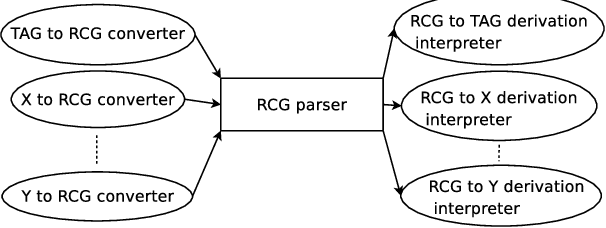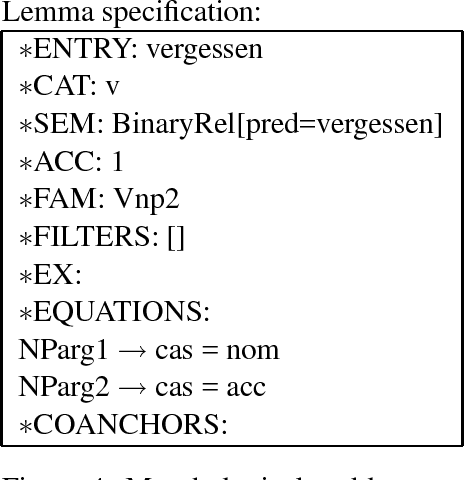Timm Lichte
University of Tübingen, Germany
Object-oriented lexical encoding of multiword expressions: Short and sweet
Oct 23, 2018



Abstract:Multiword expressions (MWEs) exhibit both regular and idiosyncratic properties. Their idiosyncrasy requires lexical encoding in parallel with their component words. Their (at times intricate) regularity, on the other hand, calls for means of flexible factorization to avoid redundant descriptions of shared properties. However, so far, non-redundant general-purpose lexical encoding of MWEs has not received a satisfactory solution. We offer a proof of concept that this challenge might be effectively addressed within eXtensible MetaGrammar (XMG), an object-oriented metagrammar framework. We first make an existing metagrammatical resource, the FrenchTAG grammar, MWE-aware. We then evaluate the factorization gain during incremental implementation with XMG on a dataset extracted from an MWE-annotated reference corpus.
TuLiPA: Towards a Multi-Formalism Parsing Environment for Grammar Engineering
Jul 23, 2008



Abstract:In this paper, we present an open-source parsing environment (Tuebingen Linguistic Parsing Architecture, TuLiPA) which uses Range Concatenation Grammar (RCG) as a pivot formalism, thus opening the way to the parsing of several mildly context-sensitive formalisms. This environment currently supports tree-based grammars (namely Tree-Adjoining Grammars, TAG) and Multi-Component Tree-Adjoining Grammars with Tree Tuples (TT-MCTAG)) and allows computation not only of syntactic structures, but also of the corresponding semantic representations. It is used for the development of a tree-based grammar for German.
 Add to Chrome
Add to Chrome Add to Firefox
Add to Firefox Add to Edge
Add to Edge